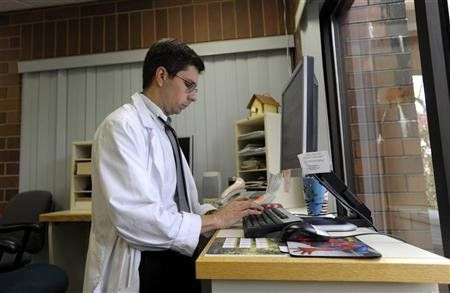Doctors Ignore Most Test Results After Hospital Discharge

Almost half of the tests ordered on the day of patient’s discharge from hospital go unnoticed, a new study from Australia found.
According to lead author Professor Enrico Coiera, important tests must be looked at while the unnecessary ones can be avoided by the doctors.
“At the most extreme, tests that are ordered on the day a patient is discharged from hospital have the least time available for them to be looked at,” said Coiera, Director of the Centre for Health Informatics at the Australian Institute of Health Innovation.
For the study, researchers analyzed medical records of more than 6,000 patients who had been given tests on the day of the discharge. Researchers found that only three percent of the reports were checked by the doctors. About 38 percent of the patients had either pending tests or unchecked lab-test results on the day of discharge. About one in seven of these unchecked results were abnormal, Reuters Health reports.
The number of tests taken on the day of discharge is few, but most of these go unchecked, researchers say in a study published in the journal Archives of Internal Medicine.
“We found that it is especially these tests, ordered on discharge day, where the biggest problem lies. So while the tests ordered on discharge day only accounted for about 7% of all tests ever ordered in our study, they were responsible for 47 percent of unread tests at the time of discharge, and 41 percent of unread tests two months after discharge," Coiera said.
Researchers say that a computerized test-result generating system can quicken the process and make sure that most of the test results are checked by a doctor.
“Even a simple list of test results that have not yet been read or have not yet come in could be generated electronically to prompt clinical teams to actively manage them, both on discharge day and in the days that follow,” he says.
Experts recommend that patients must be aware that some tests taken on the day of discharge can take some time to process and that although all may not require checking, some may need to be looked at.
"A lot of patients assume that if they don't hear from their healthcare provider that no news is good news, and that's absolutely incorrect. No news could mean the care providers never got to look at those test results," Dr. Christopher Kim, a hospitalist at the University of Michigan Health System in Ann Arbor told Reuters Health. Kim wasn't a part of the present study.
Published by Medicaldaily.com



























